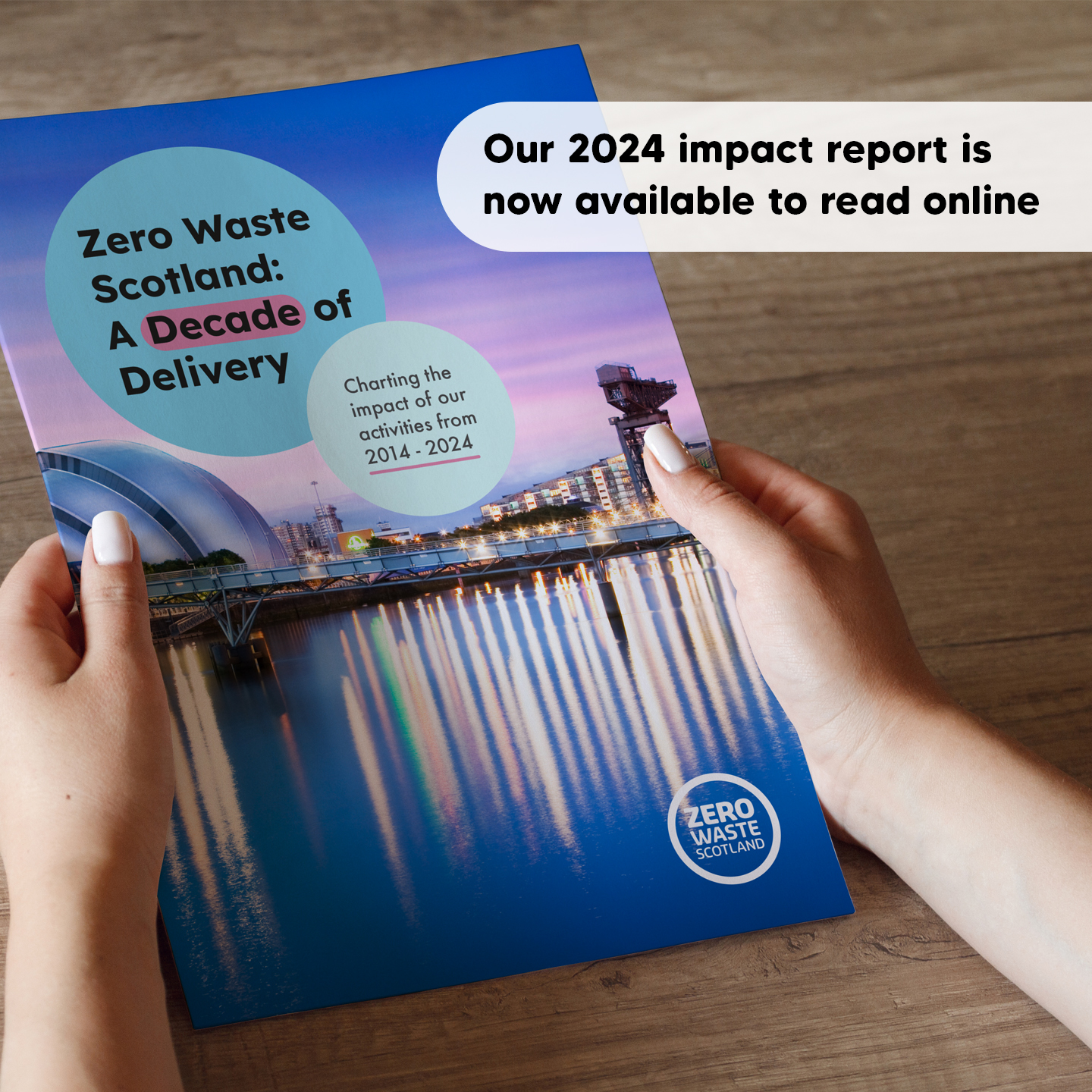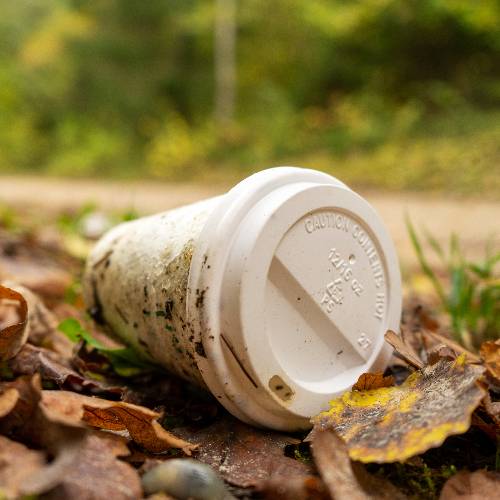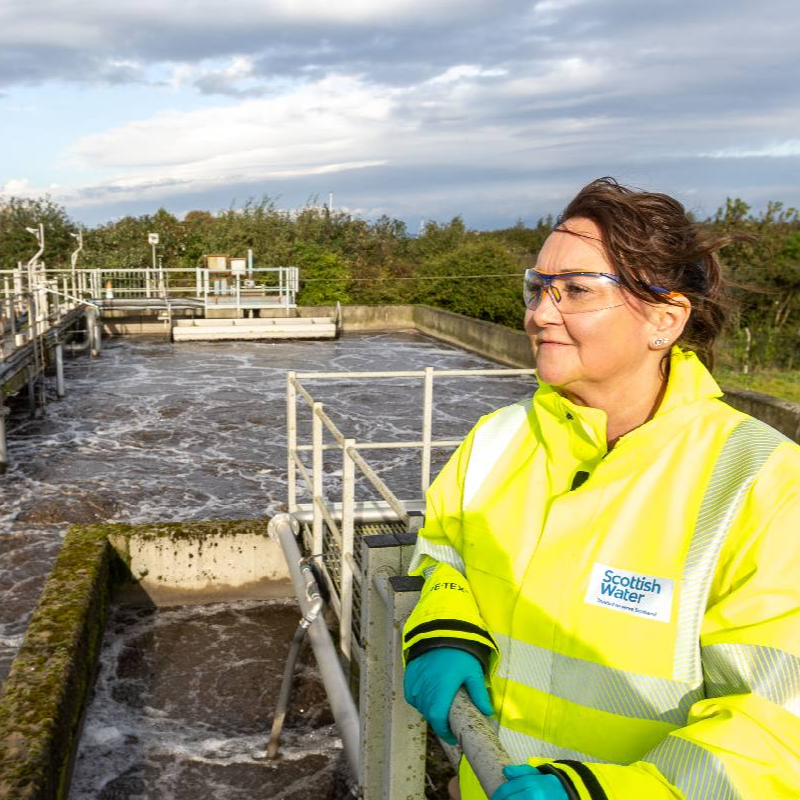
Single-use carrier bags charge (Scotland)
The Scottish Parliament passed legislation on 20 October 2014 (ammended 1st April 2021) that requires all retailers (food and non-food) to charge a minimum of 10p for each new single-use carrier bag (including paper, those made from some plant-based materials and plastic).
The aim is to encourage bag reuse and reduce the visible impact of litter.
We supported Scottish retailers to help them understand their legal requirements under the regulations and provide staff training support and marketing materials for customer in-store communications.
Information for businesses
The Carrier Bag Commitment Portal, for logging chargeable carrier bags, is no longer in operation in Scotland.
If your business employs 10 or more full time equivalent (FTE) members of staff at the beginning of a reporting year then you have a requirement under the Regulations to keep, retain and produce a record of information about the single use carrier bags supplied and the money received as a result of having to charge for bags. Records must be retained for a 3-year period.
There is no requirement to publish these records, they just need to be kept for the retention period in case a local authority requests it. An example of a template for recording information required under the regulations can be found in the frequently asked questions below.
Please note, this information applies to Scotland only. Other areas in the UK many have different regulations for the reporting of carrier bag charges.
If you previously used the Carrier Bag Portal and have any questions, please contact us by emailing circulareconomy@zerowastescotland.org.uk.
Frequently asked questions
Key Information
Since October 2014 single use carrier bags can no longer be given away free of charge when people buy goods. Single use carrier bags can be made from plastic, paper or some types of plant based material, with a full definition under the Regulations provided in Section 2.
The requirement to charge does not apply to some single use carrier bags. Details on which bags are exempt from the requirement to charge can be found in Section 3.
The Regulations do not fix the amount you, as a retailer, must charge for a bag but rather require a minimum price of 10p per bag is charged. Further information on the obligation to charge can be found in Section 4.
If you employ 10 or more FTE (Full Time Equivalent) staff then you have an obligation to keep, retain and produce information relating to the amount of single use carrier bags you supply and the money received as a result of charging for these bags. Further information on this requirement can be found in Section 5.
Failure to fulfil the relevant requirements under these Regulations would constitute an offence. Local authorities are the enforcement authorities for the purpose of these Regulations. Further information on what would be considered a breach of the Regulations can be found in Section 7.
The Scottish Government is encouraging retailers to donate the proceeds from this charge to good causes in Scotland, particularly environmental good causes.
What is a single use carrier bag?
The term ‘single use carrier bag’ is defined broadly in the Regulations to encompass all carrier bags that are supplied with the intention that they are to be used once, to carry goods away from the point of sale.
For bags made wholly or mainly from plastic then the bag is considered to be a single use carrier bag if either of the following apply:
- Made of thin plastic (any part of the bag has a thickness of no more than 49 microns); or
- Less than 439mm x 404mm when laid flat (excluding the handles).
Other plastic bags, bags made wholly or mainly from paper, plant based material (other than cotton, flax, hemp, jute or sisal) or natural starch are also seen as single use carrier bags, unless the bag is a multi-use bag which is:
- Purchased by the customer;
- Returnable to the retailer from whom it was purchased to be replaced free of charge when it is worn out;
- Clearly marked that it can be returned and replaced in this way;
- Certain small bags (specified in the Section 3) are never seen as single use carrier bags and can therefore always be provided free of charge.
The Regulations do not apply to other types of product that might be used to carry or package goods such as boxes, buckets, sealed plastic packaging or envelopes.
Which bags are exempt from the requirement to charge?
The Regulations specify a number of exemptions where there is no requirement to charge for carrier bags.
Bags of any size used solely to contain exempted items listed in the Regulations:
- Unpackaged food for human or animal consumption, such as loose fruit and vegetables, bakery items, pick and mix sweets and dry animal food.
- Unpackaged loose seeds, bulbs, corms or rhizomes, such as grass seeds, daffodil bulbs or root ginger.
- Any unpackaged axe, knife, knife blade or razor blades, such as a kitchen knife which is mounted on cardboard but not then enclosed in wrapping.
- Unpackaged goods contaminated by soil, such as soil, compost, potted plants, fishing bait and wormery worms.
- Certain medicinal products, such as fullfilling prescription requests and pharmacy medication which can only be dispensed by a qualified pharmacist.
Please be aware that the above exemptions are only valid where the bag provided is used solely to contain one or more of these listed items.
It is the responsibility of the seller to ensure that bags are used to solely contain the items above. This can be achieved by only providing bags of a size suitable for containing items on the list.
‘Unpackaged’ for the purpose of the Regulations refers to items which are “wholly or partially unwrapped” such as chips from quick service restaurants or food supplied in containers which are not secure enough to prevent fluid leaking during normal handling.
1. Bags of a certain size used solely to contain packaged uncooked meat, poultry and fish:
As well as the above exemption on unpackaged foods, there is no obligation to charge if the bag is used solely to contain packaged uncooked fish or fish products, packaged uncooked meat or meat products or packaged uncooked poultry or poultry products. This exemption only applies where the bag is less than 206mm (width) x 459mm (height including handles) with a maximum gusset of 125mm.
2. Small bags that can always be supplied free of charge:
Small paper bags, no greater than 175mm x 260mm, without a handle and/or a gusset. These types of bags are generally used for small items such as greeting cards. Small paper bags, no greater than 155mm x 80mm, without a handle but with a gusset of no more than 50mm. These types of bags are generally used for pick and mix confectionary or in pharmacies for non-prescription medicines. Small flat plastic bags, no greater than 125mm x 125mm, without a handle. These types of bags are usually used for small hardware or haberdashery items such as screws or buttons.
3. Certain specialist bags are also exempted from the requirement to charge:
Mail order dispatch or courier bags for the delivery of goods. Bags used for the transport of live aquatic creatures. Liners used to cover boxes, crates or other containers of a similar nature.
4. Bags of any size used to contain items purchased in airports and on board vehicles, vessels and aircraft:
There is no obligation to charge for supplying single use carrier bags on board ships, trains, aircraft, coaches or buses. This bag does not have to be used solely to contain purchases made on board the vehicle.
There is no obligation to charge for supplying single use carrier bags in restricted areas in airports, including duty free shops and other airside retail outlets.
When do you have an obligation to charge?
The Regulations do not specify the amount you must charge for a single use carrier bag. Instead it is required that a MINIMUM of 10p per bag is charged and that you are then free to charge any amount above this should you wish.
The minimum charge includes any VAT on the amount paid for the bag.
Two situations require a charge to be levied for single use carrier bags:
Where a new bag is supplied at the place in Scotland where the goods are sold, for the purpose of enabling goods sold to be taken away. Where a new bag is supplied for the purpose of enabling the goods sold to be delivered to any person.
An obligation to charge applies to the supply of single use carrier bags where a bag is used or allowed to be used for the purpose of allowing goods to be taken away or delivered.
You and your staff must take all reasonable precautions and exercise all due diligence to prevent a violation of the requirement to charge. This includes making arrangements to avoid bags being taken by honest mistake or theft e.g. from self-checkout facilities. See Section 7 for examples of the type of actions your business is expected to take to fulfil this requirement.
Where the goods you sell are supplied to the customer by a 3rd party acting on your behalf, the obligation to charge remains with your business if these goods are provided in a single use carrier bag.
Only new single use carrier bags are subject to the charge, so if your business chooses to reuse single use carrier bags that have previously been used then there is no obligation to charge for them. The intention here is to exclude carrier bags where the charge has previously been paid.
The point at which “goods are sold, for the purpose of enabling goods to be taken away” does not necessarily have to occur immediately after the financial transaction has taken place. It is any situation where a bag is supplied to enable someone other than someone within your business to remove goods from the location at which they were sold e.g. click and collect services.
In the situation where a customer makes a purchase, places the purchased item into one of their own bags and then asks for a single use carrier bag to carry items that have been displaced from this other bag then the requirement to charge would still be applied. This is because the need for this bag is directly related to the purchase of goods from you.
If a customer has not purchased goods from your business then there is no requirement to charge for a bag, for example distributing free promotional materials, literature or when providing a service e.g. collecting clothes that have been repaired or cleaned. This does not include providing or giving access to single use carrier bags free of charge for no reason, as it is presumed that the intention of this bag is for use of removing purchased goods.
For distance selling or when arranging delivery of goods, customers should be given the option to accept or decline using carrier bags. This is to encourage a reduction in the number of bags used e.g. using reusable crates instead of bags or where only a few items are ordered not requiring anything additional to carry them. Where multiple items are ordered, such as grocery deliveries, we are aware that some retailers may decide to charge for an average number of bags per delivery where a customer has chosen a delivery with bags having been given the option of a bag-less delivery. The Scottish Government considers that retailers using this approach should be able to show that they have taken all reasonable precautions and exercised all due diligence to comply with the requirement to charge for single use carrier bags.
The Regulations only apply to goods sold (and put into bags) in Scotland. Therefore, goods supplied from a store in Scotland for delivery to an address in England will be subject to the requirement to charge. Goods supplied from a store in England for delivery to an address in Scotland would not be subject to the Scottish Regulations but you should refer to the English Regulations introduced in October 2015.
Single Use Carrier Bags provided for purposes other than to enable a customer to carry purchased items away or to enable the delivery of purchased items are NOT subject to the obligation to charge. For example, a bag used to “re-seal” an item where the original packaging has been damaged would not be subject to the charge as the bag is providing the function of primary packaging.
What information do I have to record?
If your business employs 10 or more full time equivalent (FTE) members of staff at the beginning of a reporting year then you have a requirement under the Regulations to keep, retain and produce a record of information about the single use carrier bags supplied and the money received as a result of having to charge for bags. The requirement applies even if the number of staff you employ falls below that threshold in the course of the year.
Examples of the type of actions required to be taken to fulfil this requirement can be found under Section 7.
If your business employs less than 10 FTE members of staff on the first day of the reporting year, then you are exempt from this requirement to record information for that year. The exemption applies even if the number of staff you employ rises above that threshold in the course of the year. The number of FTE staff should be reviewed for the next reporting year.
Under the Regulations it is intended that only “core” staff are considered when calculating the number of FTEs employed by a business. You should therefore discount temporary or casual staff covering periods of absence by a member of staff, work carried out by casual staff on an ad hoc basis, students or jobseekers undertaking work experience, work carried out by apprentices or volunteers, and incidental work carried out by casual staff such as impromptu deliveries and cleaning. Permanent staff who are absent from work on the first day of the reporting year due for example to maternity leave or ill health should be counted, but not any temporary or casual staff employed to cover the absence.
Business here refers to the overall company, therefore if you own more than one outlet it is the total number of staff employed by the company. Full time staff count as 1 FTE and part time staff count as a fraction of one FTE, in proportion to the number of hours they work compared to a full time staff member.
The information recorded must include the following details:
- The number of chargeable single use carrier bags supplied.
- Price charged per bag.
- Total income received arising from the charge
- A breakdown of specified overheads incurred (VAT if applicable, costs reasonably incurred to comply with the Regulations and communicate information about the charge to customers).
- Net proceeds of the charge (amount received by way of the charge less cost of these overheads).
An example template for recording this information is included in this guidance document as Appendix 1.
The first reporting year started on 20 October 2014 and the second reporting year started on 7 April 2015. Each reporting year now always starts on 7 April each year.
When operating in a retail concession, such as in a department store, the responsibility to keep records is with you the retailer and not the host store. Depending on the arrangements between you, the retailer, and your host these records can be kept either by individually or on an aggregated basis, whichever places least burden on the businesses involved.
Where a business is operated under a franchise scheme, each individual franchisee is a separate trading entity and is therefore required to keep, retain and produce records on an individual franchisee basis. However, if a franchisee owns and operates more than one franchise store, then that franchisee is able to keep, retain and produce an amalgamated record and is not required to keep separate records for each store.
You should consider how to evidence the reasonableness of any costs to enable compliance with the Regulations should the need to so arise. Examples of reasonable costs could include ongoing training of staff, additional costs associated with monitoring compliance across multiple stores, staff time administering the charge, costs incurred supplying records on request and ongoing maintenance of systems to administer the charge.
Likewise evidence should also be considered on the reasonableness of any costs to communicate information about the charge to your customers. Examples of these costs could include website activity, staff time talking to customers about the charge and costs of printed materials distributed to customers.
Retention and production of records
Records must be retained for a 3 year period. The retention period begins on 31 May following the end of the reporting year in question.
You are obliged to produce these records as specified in the Regulations if a local authority requests it. Records must be provided within 28 days of receiving the request. This obligation applies to all sellers who are required to keep records, regardless of their VAT status or the number of single use carrier bags that they supply.
Use of net proceeds
The Regulations do not impose any obligation on how the net proceeds of the charge should be used; the decision on how to use this money is one for individual businesses to make. The Scottish Government is encouraging retailers to donate the net proceeds of the charge to good causes in Scotland, particularly ones that benefit the environment.
What is considered a breach of the regulations?
Firstly it is important to note that if your business is found in breach of the Regulations then enforcement action can be taken and that liability to a criminal penalty arises where a breach is proved.
Contravening the requirement to charge where relevant for single use carrier bags
To defend yourself in a prosecution for contravening the requirement to charge you must be able to show that you took all reasonable precautions and exercised all due diligence to prevent the offence being committed.
Examples of the type of actions to avoid this breach would be:
- Staff training.
- Reviews and spot checks.
- Making it known to customers that chargeable bags must be paid for.
- Putting in place appropriate arrangements to avoid chargeable bags being taken by honest mistake or theft.
- Ensuring 3rd parties involved in the delivery of goods are aware of your business’ obligation to charge for bags supplied by the 3rd party.
- Adjusting online shopping websites to offer bag-less deliveries or require customers to actively choose whether to purchase chargeable bags for delivery.
Contravening, without reasonable excuse, with the requirement for the supplier to keep records
Examples of the type of actions to avoid this breach would be:
- Referring to Section 5 of this guidance for the information required to be recorded under the Regulations.
- Checking frequently that records are being made.
- Where an IT system is used, ensuring that this is capable of accurately recording the data required and that this is appropriately maintained/backed up to prevent data losses or corruption.
- Ensuring that the necessary data is regularly recorded throughout the reporting year so that the record produced at the end of the year is accurate.
- Training relevant staff on the recording system or practices in place to ensure that it is operated consistently over time.
- Putting in place procedures to ensure that inconsistencies or mistakes in how or whether data is recorded are detected and remedied.
- If your business does not operate solely in Scotland, putting in place arrangements to ensure that systems or practices can accurately record Scotland-only data.
Other offences
It is also an offence to:
- Knowingly or recklessly make a false entry in a record.
- Fail, without reasonable excuse, to comply with a request to produce records for the local authority.
- Knowingly give false or misleading information to the local authority.
- Otherwise obstruct or fail to assist the local authority in the exercise of its functions under these Regulations.
Appendix 1: Template for recording information required under the regulations
Name of seller ...........................
The Single Use Carrier Bags Charge (Scotland) Regulations 2014 - record for the period [ ] to [ ]
Number of chargeable bags supplied (1) ...........................
Total amount received from the sale of chargeable bags (2): ...........................
Net proceeds of the charge (3): ...........................
The difference of [ ] between the total amount received from the sale of bags and the net proceeds of the 10p charge is made up of the following (4) ...........................
Amounts above 10p that customers paid for bags (5): ...........................
Costs incurred informing the public about the charge (6): ...........................
Compliance costs (7): ...........................
VAT (8): ...........................
Notes
This will be the total number of chargeable bags supplied in the reporting year. This figure will therefore not include any bags that you did not have to charge for (because they were exempt from the requirement to charge or they broke, for example).
If you sell bags at 10 pence each the amount you record here will be the same as the amount you record on the following line under “total amount received from the 10p charge”. If you sell bags at more than 10 pence each, the amount you record here will be the figure you arrive at by multiplying the number of chargeable bags you supplied by the price you charged your customer for each.
This will be the figure you arrive at by subtracting your overheads from the total amount you received from the sale of chargeable bags (which you will have recorded under 1 above). Your overheads will be your reasonable costs, any VAT you had to charge and any amount over 10 pence that you charged for bags.
If you incurred any costs in complying with the legislation or informing customers about the charge; if you charged more than 10 pence for chargeable bags or if you charged VAT, then your net proceeds of the charge will be less than the total amount you received from the sale of bags. This is where you account for the difference between the two figures.
If you sold bags at more than 10 pence you multiply the additional amount by the number of bags you supplied and record the result here. If you sold bags at 10 pence each, you will not need to record anything here and so this line can be deleted from the template in your case.
This where you record what it cost you to inform your customers about the charge.
The costs to you of complying with the legislation will appear here. For the first reporting period the costs include any preparatory expenditure you made before the Regulations came into force on 20 October 2014.
If you charged VAT on the supply of chargeable bags, you will record that amount here. Note that it is only the VAT included in the 10p charge that is recorded here, not the amount of VAT included in any amounts in excess of 10 pence that you charged for bags.
When did the minimum price change from 5p to 10p?
The minimum price of a single-use carrier bag increased from 5p to 10p from 1 April 2021. Find out more on the Scottish Government website.






